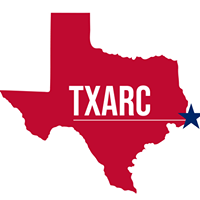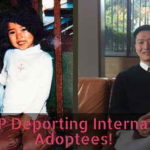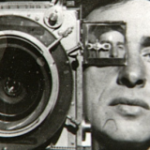Bastard Nation: the Adoptee Rights Organization
Testimony in Support of HB 1599
Missouri House Committee on Children and Families
February 2, 2016
Submitted by Marley E. Greiner, Executive Chair
Bastard Nation: the Adoptee Rights Organization is the largest adoptee civil rights organization in the United States. We support only full unrestricted access for all adopted persons, to their original birth certificates (OBC). We do not support any restrictions such as the Affidavit of Non-Disclosure/Disclosure Vetoes (DV), Contact Vetoes (CV), white-outs, or any other form of redaction or restricted access to a true copy of the original birth certificate.
We are happy to support passage of HB 1599 , an inclusive bill, that when passed will restore OBC access to all Missouri-born adoptees upon request without restriction or condition. We urge you to support this bill and pass it out of the Committee on Children and Families.
Our testimony is divided in three parts (1) general comments regarding sealed OBCs, and privacy v anonymity, (2) the consequences of continued OBC sealing and (3) a short conclusion.
Privacy v anonymity in OBC Access
Unrestricted OBC access is not a “privacy” issue. There is no evidence in any state that OBCs were sealed to “protect” the reputation or “privacy” of biological parents who relinquished children for adoption. On the contrary, records were sealed to protect the reputations of “bastard children” and to protect adoptive families from birthparent interference.
”Privacy” and” anonymity” are not synonymous either legally or linguistically. Moreover, courts have ruled that adoption anonymity does not exist. (Doe v Sundquist, and Does v Oregon Summary Judgment). Laws change constantly, and the state, lawyers, social workers, and others were never in a position to promise anonymity in adoption. In fact, in the over 40 years of the adoptee rights battle, not one document has been submitted anywhere that promises or guarantees sealed records and an anonymity “right” to birthparents.
Identifying information about surrendering parents often appears in court documents given to adoptive parents who can at any point give that information to the adopted person. The names of surrendering parents are published in legal ads. Courts can open “sealed records” for “good cause.” Critically, the OBC is sealed at the time of adoption finalization, not surrender. If a child is not adopted, the record is never sealed. If a child is adopted, but the adoption is overturned or disrupted, the OBC is unsealed. In some statees adoptive parents can request the court at the time of adoption finalization to keep the document unsealed.
We are well into the 21st century. The information superhighway grows wider and longer each day, and adoptees and their birth and adoptive families are riding it, utilizing the Internet, social media, inexpensive and accessible DNA testing services, and a large network of volunteer “search angels” to locate their government-hidden information and histories.
Thousands of successful adoption searches happen each year—hundreds in Missouri alone—making adoption secrecy virtually impossible. The minuscule number of birthparents or so-called “professional experts” who believe that restricted OBC access or no access equals adoption anonymity are greatly mistaken. The fact is, nearly all successful searches are done without the OBC. Legislation needs to catch up with technological reality.
Consequences of Continued OBC Sealing
Critically, in this age of heightened security, the government requires all of us to prove our identities and citizenship– a legal paper trail of identity. As a result, adopted persons without an OBC are in danger of losing even more rights than just their OBC access. US-born adoptees report increased problems in obtaining driver’s licenses, passports, professional certifications, Social Security benefits, pensions and security clearances due to what government bureaucrats refer to as “irregularities” in their amended birth certificates issued by Missouri and all other states, and are demanding the OBC as proof of citizenship and identity.
A major irregularity is a “late birth certificate“ filed a year or more after the birth of a child. Late filing is caused by various factors: delayed adoption, multiple/disrupted adoption, older child and foster care placement, and bureaucratic slowness. Until recently, states required that children live with their adoptive parent(s) for about a year before the adoption was finalized; thus a new amended birth certificate was issued “late”
According to the US Department of State a “late birth certificate” may only be accepted for passport application if it lists the documentation used to create it and is signed by the attending physician or midwife, or, lists an affidavit signed by the parents, or shows early public records indicating the birth. Obviously, in the case of sealed records adoption, this requirement is impossible to meet. Reportedly, some states are now backdating the filing date of amended birth certificates to “keep up” with federal requirements; thus creating an even larger legal fiction regarding adoptees’ births than now exists.
Other “irregularities” include age discrepancies between parents and child, missing information, and irregular signatures (ex: typed rather than signed). This problem will grow with the increase in adoption of older children from foster care, adoptions by same sex couples, Real lD, and other government “security” requirements.
Conclusion
There is no state interest in keeping original birth certificates sealed from the adult adoptees to which they pertain. Nor does the state have a right or duty to mediate and oversee the personal relationships of adults. Those who claim a statutory right to parental anonymity through sealed records or though restricted access to them promote statutory privilege and state favoritism.
Missouri’s current OBC access laws do not reflect current adoption best practice and culture, and as we’ve noted above, the reality of technology and social media which has been eagerly embraced by adoptees and their families in search of information that is rightfully theirs, denied them by the state.
Consequently, over the years the Missouri legislature has heard many bills regarding OBC access. Some have gone nowhere and others have further complicated the already complicated access process. This time, however, HB 1599, its sponsor Rep. Don Phillips and its nearly 40 sponsors got it right. HB 1599 creates not only equal access for all Missouri-born adoptees but treats the state’s adoptees as equal with the not-adopted, who unlike the adopted are not forced to undergo an onerous legal process simply to get their own birth certificates. HB 1599 reflects the simple inclusive OBC access process that five states have enacted. (Oregon, Alabama, New Hampshire, Maine, and Rhode Island.) Kansas and Alaksa never sealed records.
Support Missouri in becoming a leader in adoptee rights and adoption reform. Please take the first step in returning unrestricted and unconditional OBC access to all Missouri adoptees. Please vote DO PASS on HB 1599.




 New York Adoptee Rights Coalition
New York Adoptee Rights Coalition












I am one of the adoptees that is trying to obtain my OBC. I was adopted in Texas and the 30th District Judge said that they should not have to order another state to unseal my records. His office did provide me with copies of these adoption paperwork. I am in dire need of these as I have went back to my birth name not realizing my records were sealed and cannot get my OBC. I am trying to get my CDL License and cannot do so without this document.